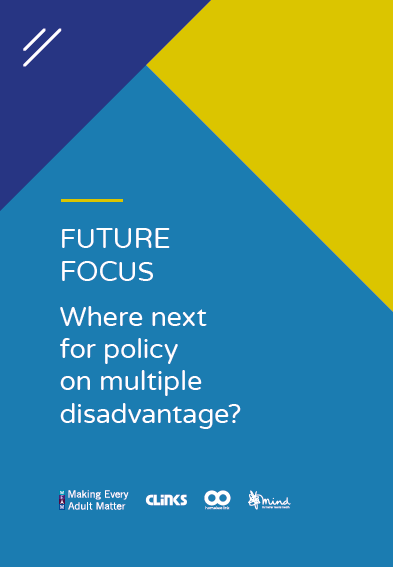
In Future Focus: Where next for policy on multiple disadvantage? we set out our commission on the future of multiple disadvantage policy and the four key questions that can help resolve the persistent challenges that remain.
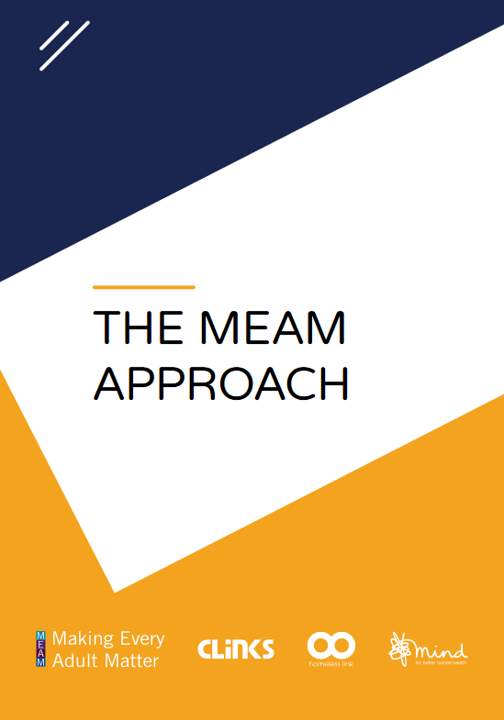
This booklet provides information on the MEAM Approach in a downloadable PDF format.
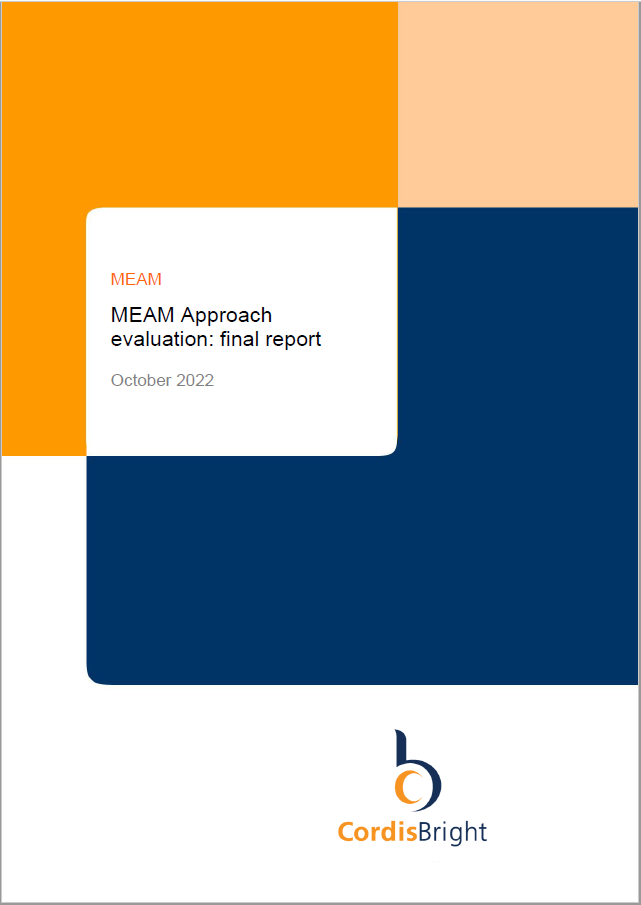
The final (Year 5) report from Cordis Bright’s longitudinal evaluation of the MEAM Approach network. The five-year evaluation began in 2017 and assessed the impact of the MEAM Approach on people experiencing multiple disadvantage, local services and systems. A research group made up of experts by experience worked alongside Cordis Bright to deliver the evaluation.
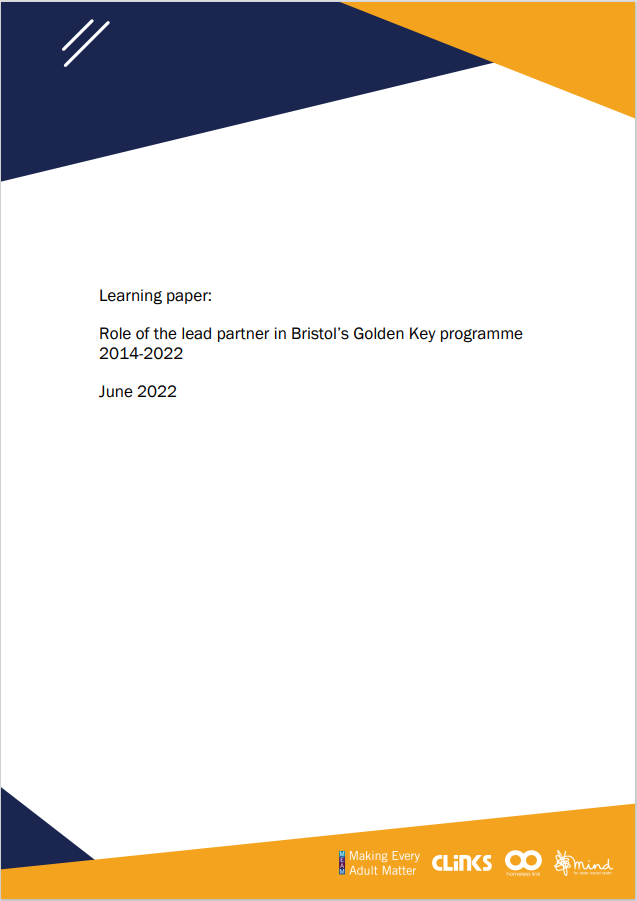
This learning paper is the result of a piece of work exploring Second Step’s role as lead partner in the Golden Key programme. From the discussions we identified a set of ten ‘criteria for success’, considered to have impact, relevance and transferability for future partnership programmes.
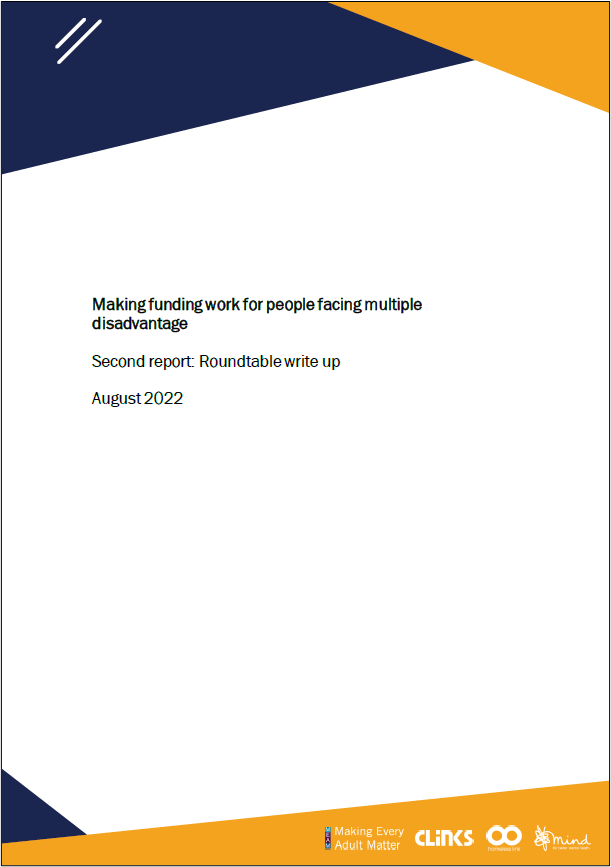
This briefing draws on our previous report and a roundtable of civil servants to offer a series of recommendations for improving the way funding works for people facing multiple disadvantage.
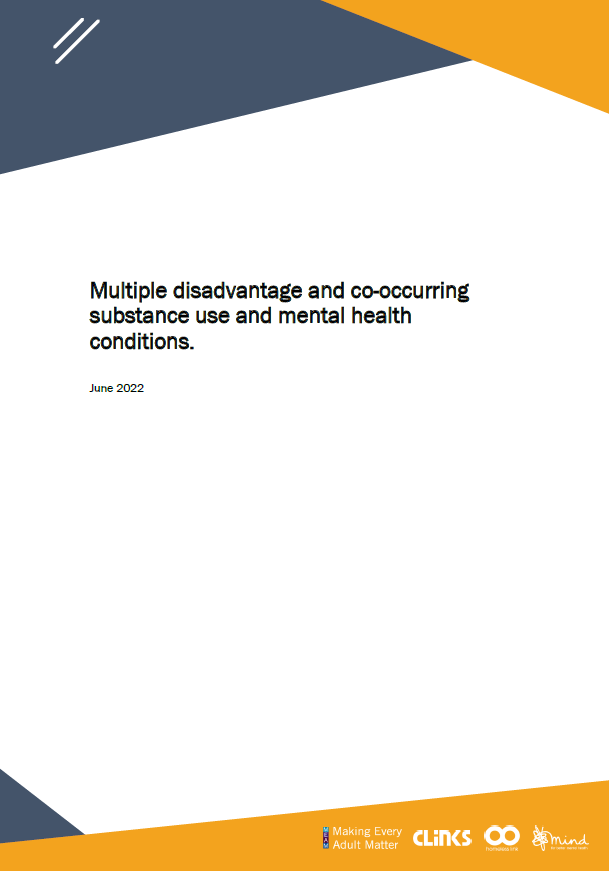
This briefing explores access to appropriate support and treatment for people facing co-occurring mental health and substance use needs. It is informed by research with local leads in MEAM Approach and Fulfilling Lives areas.
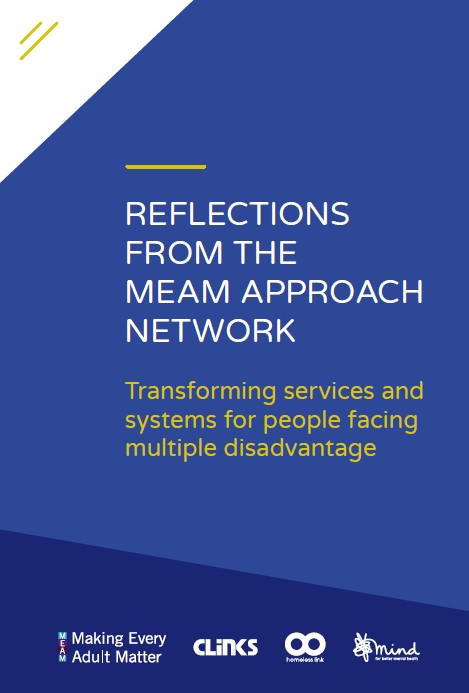
In Reflections from the MEAM Approach network, we explore some of the ‘key ingredients’ that MEAM Approach areas and the MEAM team see as essential to successful work, and consider what is needed next for the future. The content of the report reflects five facilitated conversations held at the MEAM Approach network annual conference in March 2022
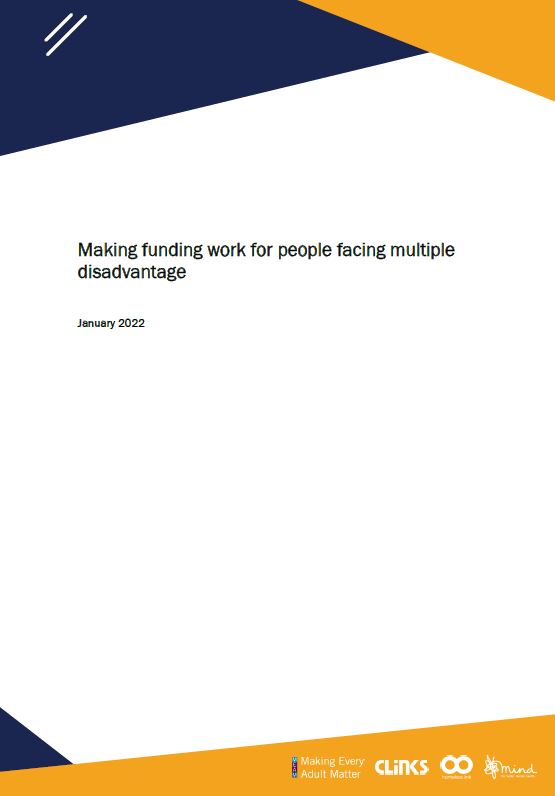
Funding streams made available to local areas to tackle homelessness and rough sleeping, substance misuse, mental health and criminal justice are important and welcome. They are delivered by committed teams of civil servants and create positive impact for many people. However, the way in which government funding streams are traditionally designed, offered, coordinated and monitored can limit the collective impact they have for people facing multiple disadvantage. This briefing is the first part in an exploration of the various streams of funding that have been made available to local areas over the last 18 months and the impact these have had on the ability of local areas to support people experiencing multiple disadvantage.
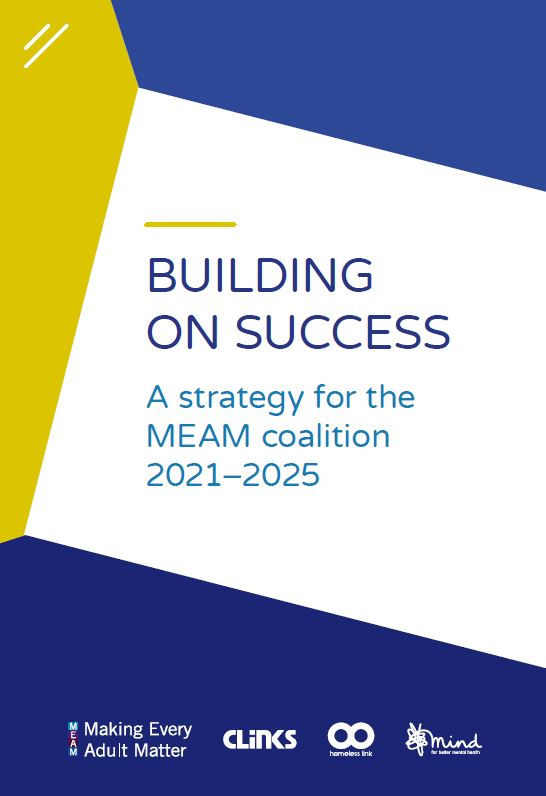
MEAM has launched Building on Success, a strategy to guide our work over the next four years. The document outlines three strategic aims and our ultimate goal: that by 2025 every area in the country will have a partnership approach to multiple disadvantage in place and be taking practical steps to transform services and systems for people facing multiple disadvantage.
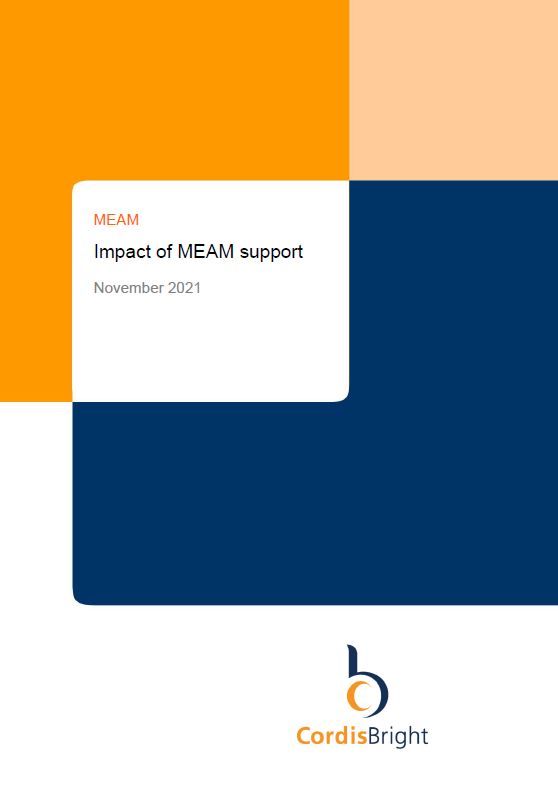
Cordis Bright has published a new report exploring the nature and impact of the support MEAM provides to local areas in the MEAM Approach network. The research investigated the types of support MEAM provides to local areas, which types of support are most valued, and the impact of MEAM support on people, partnerships and the wider system.